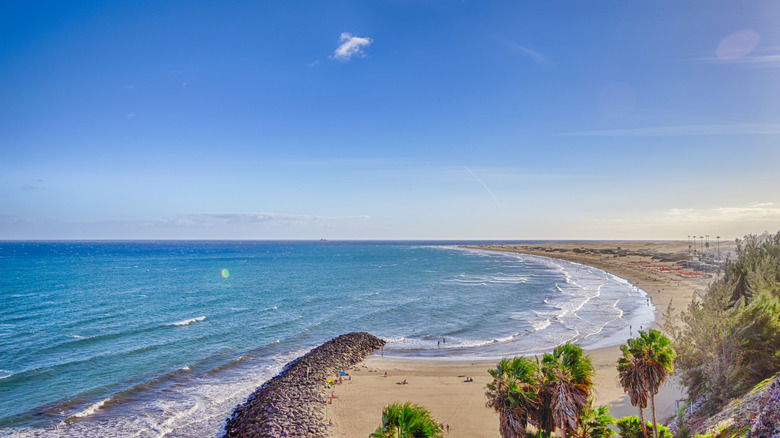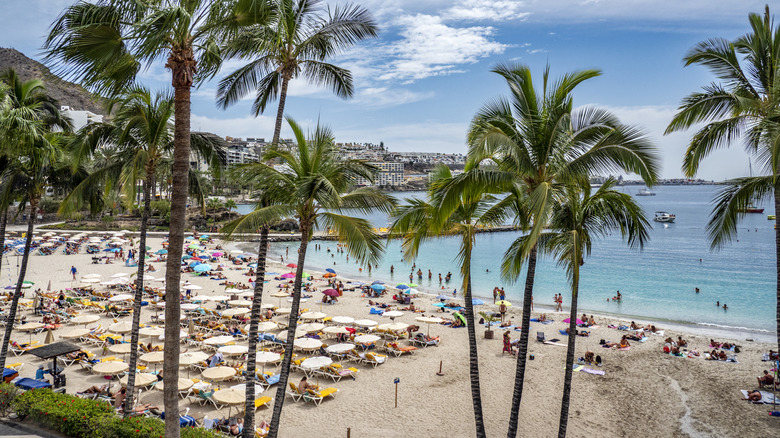Spain's Strict New Rules For Beachgoers Visiting Gran Canaria Could Cost You Big-Time
The Canary Islands are a great spot for a warm-weather winter vacation, making them super popular among British tourists. But tourists to one of the islands — Gran Canaria — should be aware of some new, pretty strict rules on its Agaete coastline beaches because breaking them could lead to hefty fines.
Some of these rules seem pretty obvious — for example, having sex anywhere on the beaches is strictly banned. So if you're feeling frisky, stick to a sex on the beach cocktail instead. But some of the new rules ban relatively common things we're used to seeing on a beach, such as using umbrellas for shade or playing music in sunbathing areas. It seems the new rules are aimed at regulating tourism (there have been several protests by Spanish locals unhappy with the effects of tourism) and protecting the environment from disruption and damage.
While not all the rules are entirely surprising, they are being strictly enforced, so tourists who unknowingly break them could be in for a rude (and expensive) awakening. Minor offenses will cost you anywhere from €30 ($32) to €750 ($811), serious offenses are fined between €751 ($812) and €1,500 ($1,621), and very serious violations cost up to €3,000 ($3,244). So whether you're looking for under-the-radar beaches to visit in Europe — the Agaete coastline is known for its rocky, natural beaches — or just stopping over in Gran Canaria on a cruise, keep these rules in mind to avoid any unpleasant surprises.
What tourists should know before hitting Gran Canaria's beaches
With all these new rules in place, one of the best ways to explore the Canary Islands without breaking the bank will be to read up on regulations ahead of your trip to avoid getting slapped with steep fines. For starters, go ahead and leave that vape at home, as there is no smoking or vaping allowed. You're no longer allowed to cook on the beach, either. Also, be sure to keep the walkways and access routes clear for people to pass through.
Camping or erecting tents on the beach overnight is no longer tolerated. While it might sound like a fun way to fall asleep under the stars, doing so could lead to fines depending on the severity of the offense. However, it's not exactly clear how each rule is categorized, so we'd advise being extra cautious and following all the rules to the letter.
Don't plan on reserving any spots on sun decks or sunbathing platforms, either — it's all first-come, first-served. Beachcombing for shells and rocks is also off-limits, and if you turn over any stones, you must put them back the way you found them. Additionally, wasting water, washing with soap or shampoo, and collecting water at public showers and foot-washing stations is prohibited. Anglers must also fish in designated areas, so nowhere within 150 meters of divers or sunbathing areas. For a smooth trip, travelers should check local signage, follow posted regulations, and review up-to-date rules from official tourism sites like Turismo de Islas Canarias.

